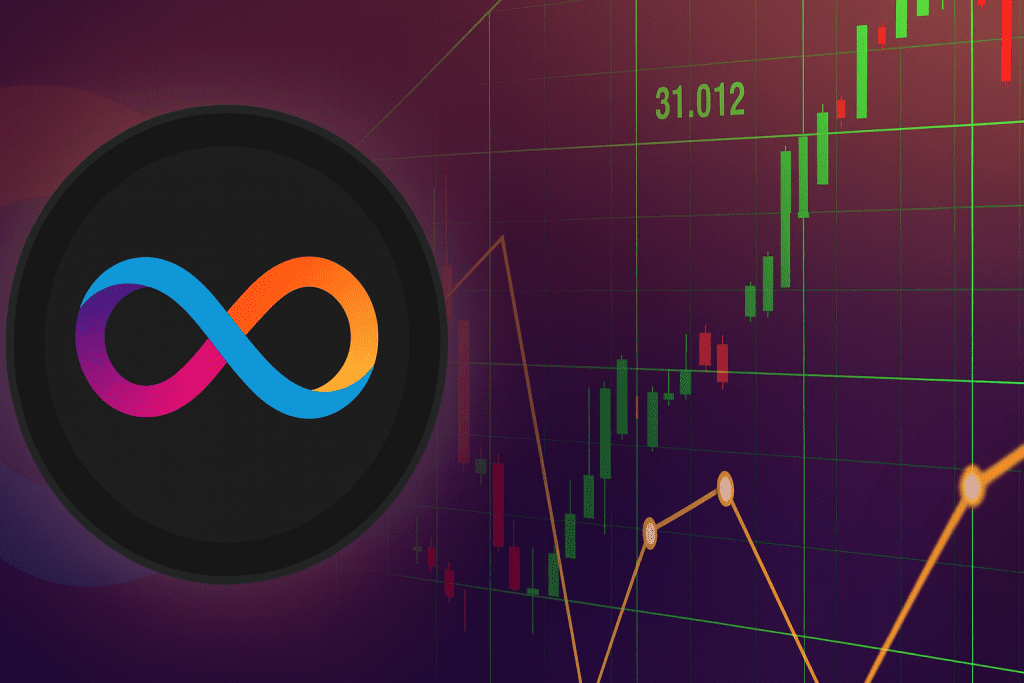Introduction to Internet Computer
The blockchain landscape continues to evolve with innovative projects that challenge traditional notions of decentralized technology. Among these groundbreaking initiatives, Internet Computer (ICP) stands out as an ambitious attempt to reimagine how the internet itself functions. Unlike conventional blockchains that primarily focus on financial transactions or limited smart contract capabilities, the Internet Computer protocol aims to extend blockchain functionality to host entire applications, services, and systems at web speed.
For those wondering what is ICP crypto, it represents both a revolutionary blockchain platform and its native digital asset. The ICP blockchain fundamentally differs from predecessors by enabling developers to build and deploy software directly on a decentralized network, eliminating the need for traditional cloud services, servers, or centralized infrastructure. This radical approach positions Internet Computer ICP as a potential game-changer in how we conceptualize internet architecture.
The Vision Behind ICP
The vision driving the Internet Computer is nothing short of transformative: creating a truly decentralized internet where applications run entirely on-chain without relying on corporate cloud providers like Amazon Web Services, Google Cloud, or Microsoft Azure. This concept of internet computers working together to form a global computational fabric represents a paradigm shift from the centralized web we know today.
The platform seeks to address critical limitations in existing blockchain technology—primarily speed, scalability, and the inability to host complex applications efficiently. By solving these challenges, the Internet Computer definition expands beyond a simple blockchain to encompass a complete reimagining of internet infrastructure powered by cryptographic protocols and consensus mechanisms.
Who Created Internet Computer (DFINITY Foundation)
The DFINITY Foundation, a Swiss not-for-profit organization, serves as the primary architect behind this ambitious project. Founded by entrepreneur and crypto theoretician Dominic Williams, DFINITY has assembled a team of world-class cryptographers, distributed systems engineers, and programming language experts. The foundation invested years of research and development before launching the Internet Computer mainnet in May 2021.
DFINITY’s approach combines academic rigor with practical engineering, developing novel consensus mechanisms and cryptographic protocols specifically designed to achieve internet-scale performance. The foundation continues to guide the platform’s technical development while working toward progressive decentralization through the governance mechanisms built into the ICP network.
How Internet Computer Works
Blockchain Architecture and Canisters
The technical foundation of the Internet Computer blockchain differs dramatically from traditional blockchain architectures. Rather than a single chain processing transactions sequentially, the platform employs a sophisticated multi-layered structure consisting of independent subnet blockchains that operate in parallel. This design enables horizontal scaling as new subnets can be added to increase capacity.
At the application level, developers work with canister smart contracts—the fundamental building blocks of the Internet Computer ecosystem. Canisters function as powerful computational units that bundle together code and state, similar to containers in traditional cloud computing but with blockchain guarantees of security and tamper-resistance. Unlike conventional smart contracts that primarily handle financial logic, canisters can serve web content, store data, and execute complex computations, making them suitable for building complete applications.
Each canister operates with remarkable efficiency, processing requests at near web-speed while maintaining cryptographic security. This innovation addresses one of the most significant barriers to blockchain adoption: performance bottleneck that plagued earlier platforms.
Network Nervous System (NNS) Governance
Governance represents a critical component of the ICP governance model, implemented through the Network Nervous System (NNS)—an algorithmic governance system that controls and manages the entire network. The NNS functions as an open, decentralized system where token holders participate in decision-making by staking their tokens in neurons.
This governance mechanism handles crucial network operations including upgrading protocol software, adjusting economic parameters, managing network topology, and making strategic decisions about the platform’s future direction. Unlike traditional corporate governance or even many blockchain projects with limited on-chain governance, the NNS provides comprehensive control over every aspect of the network’s operation.
The sophistication of the Network Nervous System enables the Internet Computer to evolve rapidly while maintaining decentralization. Proposals can range from technical protocol upgrades to economic policy changes, with the community voting on each initiative based on staked tokens.
Smart Contracts and Decentralized Applications
Decentralized applications ICP benefit from unique capabilities unavailable on other blockchains. Developers can build end-to-end applications entirely on-chain, including frontend user interfaces, backend logic, databases, and even serve web content directly to users’ browsers. This comprehensive approach eliminates the hybrid architecture common in blockchain development where only certain components run decentralized while others rely on traditional infrastructure.
The platform supports multiple programming languages, with Motoko—a language specifically designed for the Internet Computer—and Rust being primary options. This flexibility allows developers from various backgrounds to build on the platform without learning entirely new paradigms.
Key Features of Internet Computer

Scalability and Speed
The scalability of Internet Computer represents one of its most compelling features. Through its subnet architecture, the network can theoretically scale infinitely by adding new subnets as demand increases. Each subnet operates independently while maintaining the security guarantees of the broader network, enabling parallel processing that dramatically increases throughput.
Transaction finality occurs in approximately 1-2 seconds, with web-speed query calls executing even faster. This performance profile makes the platform suitable for applications requiring real-time interaction, from social media platforms to multiplayer games—use cases impractical on slower blockchains.
Security and Decentralization
Despite its impressive performance, the Internet Computer crypto maintains robust security through advanced cryptography and consensus mechanisms. The platform employs Chain Key Technology, a suite of cryptographic protocols that enable the network to scale while maintaining security properties.
Independent node providers operating data centers worldwide host the network’s infrastructure. These nodes are organized into subnets through a deterministic, decentralized process managed by the NNS, ensuring no single entity controls the network. This geographical and organizational distribution provides resilience against attacks and censorship.
Comparison with Other Blockchains
When examining ICP vs Ethereum and other established platforms, several distinctions emerge. While Ethereum pioneered smart contract functionality and hosts a thriving ecosystem, it faces well-documented scalability challenges and high transaction costs. The Internet Computer addresses these limitations through its architectural innovations, though it sacrifices some of Ethereum’s battle-tested security and network effects.
The ICP computer platform also differs from “Ethereum killers” like Solana or Avalanche, which primarily improve upon Ethereum’s model. Instead, Internet Computer pursues a more radical vision of hosting complete applications and potentially replacing traditional internet infrastructure.
ICP Token Explained
Utility of the ICP Token
The ICP token explained reveals multiple utility functions within the ecosystem. Primarily, ICP serves as the fuel powering computation on the network—developers convert ICP tokens into “cycles” that pay for computational resources consumed by their canisters. This conversion mechanism stabilizes the cost of computation in real-world terms despite token price volatility.
Additionally, the ICP cryptocurrency enables participation in network governance. Token holders can stake their ICP in neurons within the Network Nervous System, earning voting rewards while helping guide the platform’s development.
Tokenomics and Supply
The tokenomics of ICP involves a complex but thoughtfully designed economic model. The initial token distribution allocated portions to the DFINITY Foundation, early contributors, seed investors, and community participants. The network generates new ICP tokens as rewards for node providers and governance participants, while tokens are burned when converted to cycles for computation.
This dual mechanism of token creation and destruction aims to balance inflationary pressures with network usage. As the platform grows and more applications consume cycles, increased burning may create deflationary pressure on the token supply.
Staking and Governance Participation
Staking ICP involves locking tokens in neurons for periods ranging from six months to eight years. Longer lock-up periods grant increased voting power and higher rewards, incentivizing long-term commitment to the network. Stakers can vote manually on proposals or configure their neurons to follow other voters on specific topics, enabling liquid democracy within the governance system.
This staking mechanism serves dual purposes: securing governance against short-term manipulation while rewarding those committed to the network’s long-term success.
Use Cases of Internet Computer
Decentralized Finance (DeFi) on ICP
DeFi on ICP represents an emerging but promising application area. The platform’s speed and low transaction costs make it suitable for financial applications requiring frequent interactions. Several DEXs (decentralized exchanges), lending protocols, and asset management platforms have launched on the Internet Computer, leveraging its unique capabilities.
The platform’s ability to integrate directly with Bitcoin and Ethereum through chain-key cryptography enables novel cross-chain DeFi applications without traditional bridge vulnerabilities.
Web3 Applications and Services
The Internet Computer ecosystem excels at hosting Web3 infrastructure and applications. Developers have built social media platforms, messaging applications, video streaming services, and productivity tools entirely on-chain. This demonstrates the platform’s potential to host alternatives to centralized web services.
The ICP network enables applications that combine blockchain’s censorship resistance and user ownership with the performance and user experience of traditional web applications—bridging the gap that has hindered mainstream blockchain adoption.
NFTs and Digital Identity
ICP crypto use cases extend to digital collectibles and identity management. The platform supports NFT creation and trading with unique advantages: NFTs can include on-chain artwork, interactive elements, or even entire games, rather than merely pointing to off-chain storage. This capability enables richer, more dynamic digital assets.
Digital identity solutions benefit from the platform’s ability to store credentials and authenticate users entirely on-chain, reducing dependency on centralized identity providers.
Advantages and Challenges of ICP

Benefits for Developers and Users
The Internet Computer protocol offers developers compelling advantages: simplified architecture with full-stack deployment on-chain, predictable and low computational costs, and the ability to build truly decentralized applications. Users benefit from faster, smoother experiences without compromising decentralization or security.
The platform’s reverse gas model, where applications pay for computation rather than users, removes a significant friction point in blockchain adoption. This enables free-to-use decentralized applications comparable to traditional web services.
Criticisms and Limitations
Despite its innovations, Internet Computer faces legitimate criticisms. The platform’s complexity creates a steep learning curve for developers. Concerns about the degree of decentralization, particularly during early stages, have sparked debate within the crypto community.
The token’s price volatility following launch damaged confidence among some investors, though this primarily reflects market dynamics rather than technical limitations. Competition from established platforms with larger ecosystems and developer communities presents ongoing challenges.
Future Roadmap and Potential Growth
The ICP software meaning continues evolving as the platform matures. The DFINITY Foundation’s roadmap includes enhanced Bitcoin integration, improved developer tools, expanded subnet capacity, and additional cryptographic innovations. These developments aim to fulfill the original vision of creating truly decentralized internet infrastructure.
Success depends on attracting developers and users to migrate from centralized platforms or choose Internet Computer for new projects. The platform’s technical capabilities provide the foundation, but ecosystem growth ultimately determines long-term viability.
Conclusion: The Role of Internet Computer in the Future of Blockchain
Internet Computer represents one of the most ambitious attempts to reimagine internet architecture through blockchain technology. Whether it achieves its grand vision of replacing traditional cloud infrastructure remains uncertain, but the platform has already demonstrated that blockchains can host complex, performant applications at scale.
As the ICP blockchain matures and its ecosystem expands, it offers a glimpse into a possible future where users control their data, applications resist censorship, and internet services operate through decentralized protocols rather than corporate servers. For developers seeking alternatives to centralized platforms and users valuing digital sovereignty, Internet Computer provides compelling, if experimental, infrastructure.
The project’s ultimate impact may lie not in completely replacing the existing internet but in proving that decentralized alternatives to traditional web services are technically feasible—inspiring continued innovation across the blockchain industry.

